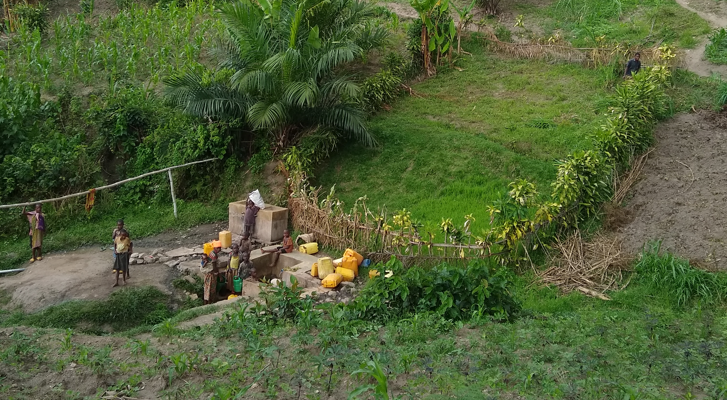Burundi – In the municipalities of Isare and Bubanza, several wells provide drinking water to the families in the area. That is the work of partner AVEDEC and Join For Water.
To make sure the water is drinkable, the protection of the source areas is crucial. Around the source lies a protection perimeter of 350m² where farming and pasturing are prohibited to avoid pollution.
Other necessary interventions are planting trees and digging ditches to increase rainwater infiltration and prevent erosion. All these interventions require land, which is scarce. 9 out of 10 Burundians live from agriculture and each family owns an average of 0.25 hectares of land.
It is consequently understandable that it is difficult for a family to give up a piece of land to protect the source area, even if it is in the interest of the community.
The law provides for compensation to the landowner, but the procedure can take a very long time, while a family that has to give up their land needs that compensation immediately. Not so much in the form of money, but rather with another parcel of land.
Finding another suitable plot of land within a reasonable distance from the house is not easy either with a population density of about 400 inhabitants per km². This land problem is therefore a real challenge in Burundi, where the authorities have to find a balance between water quality and access to agricultural land.
An additional challenge is that reforestation is often done with eucalyptus. This tree quickly generates income from wood and charcoal, but also affects water resources. Since 2020, a campaign is being conducted across the country to harvest eucalyptus trees within 15m of every developed source. Actions to replace eucalyptus with local species are ongoing, in collaboration with the Burundian organization ASREEBU, but the necessary change of mindset is slowing down the process. The action also costs a lot of money and different institutions have to join forces to achieve tangible results.
Together with the protection of the source areas, AVEDEC has started the construction of ecological latrines (ECOSAN) for families. The same problem arises here: a latrine also requires land. The population is therefore not always keen on building latrines.

